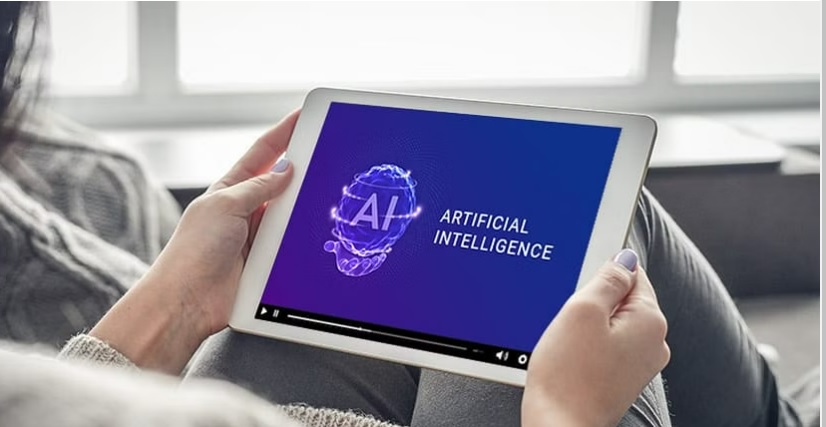Welcome to the ‘A Beginner’s Guide: How to Start with Artificial Intelligence.’ In this comprehensive AI learning guide, we’ll take you step by step through the fundamentals of artificial intelligence, making it accessible even for non-programmers.
Whether you’re starting your AI journey from scratch or seeking beginner-friendly AI resources, you’ll find a curated list of AI courses, tutorials, and certifications to kickstart your AI education. Our goal is to provide you with a clear AI learning pathway, allowing you to develop essential AI skills that are crucial for both personal growth and a potential AI career. The best part? We’ve compiled free AI learning materials to ensure that AI self-study is within reach. So, let’s dive in and explore the exciting world of artificial intelligence together!
How Can I Start Working with AI? Starting with AI can be both exciting and fulfilling. Here’s a step-by-step approach to help you get started:
1. Understand the Basics: Begin by gaining a solid understanding of AI fundamentals. Learn about the different AI subfields, such as machine learning, deep learning, and natural language processing.
2. Explore Online Courses: Enroll in online AI courses, such as those offered by Coursera, edX, or Udacity. These platforms provide comprehensive AI courses for beginners.
3. Learn Python: Python is the preferred programming language for AI development. Familiarize yourself with Python and its libraries, such as TensorFlow and PyTorch.
4. Dive into Machine Learning: Study machine learning, a core component of AI. Start with basic algorithms, and gradually move to more advanced concepts.
5. Work on Projects: Apply your knowledge by working on AI projects. Start with small, manageable projects and gradually increase their complexity.
How Do I Become an AI Expert Step by Step? Becoming an AI expert is a journey that requires dedication and continuous learning. Follow these steps to progress in your AI career:
1. Build a Strong Foundation: Master the basics of AI, including mathematics, statistics, and programming.
2. Pursue Advanced Courses: Take advanced AI courses and specializations, focusing on areas of interest, such as computer vision, natural language processing, or reinforcement learning.
3. Research and Innovation: Stay updated with the latest research papers and breakthroughs in AI. Experiment with cutting-edge technologies.
4. Collaborate and Network: Collaborate with AI experts, join AI communities, and attend conferences and meetups to network with professionals in the field.
5. Apply AI in Real-World Scenarios: Seek opportunities to apply AI in real-world projects or within your organization to gain practical experience.
Can I Learn AI Without Coding? Yes, you can learn AI without coding, thanks to user-friendly AI tools and platforms. Many AI applications offer graphical interfaces for building models without writing code. You can start with platforms like IBM Watson, Google AutoML, or Microsoft Azure AI.
Best Way to Learn AI: The best way to learn AI depends on your learning style and goals. However, a balanced approach includes:
- Enrolling in structured online courses.
- Reading AI books and research papers.
- Working on practical projects to apply your knowledge.
- Collaborating with peers and mentors.
- Staying updated with AI advancements through blogs, podcasts, and forums.
How Can I Teach Myself AI? Self-teaching AI requires discipline and a strategic approach:
1. Set Clear Goals: Define your AI learning goals, whether it’s becoming an AI engineer, data scientist, or AI researcher.
2. Online Resources: Leverage online courses, tutorials, and textbooks as primary learning resources.
3. Hands-On Practice: Apply what you learn through coding and project work.
4. Seek Guidance: Join AI communities, ask questions, and learn from experienced practitioners.
How Can I Learn AI for Free? AI learning doesn’t have to be expensive. Several free resources are available:
- Free online AI courses on platforms like Coursera and edX.
- AI tutorials and documentation on TensorFlow and PyTorch websites.
- Open-access research papers and journals.
- Public datasets for AI projects.
- AI communities and forums for discussions and knowledge sharing.
Conclusion: Starting your journey in artificial intelligence is an exciting endeavor. Whether you’re aiming to become an AI expert or simply want to understand the basics, following a structured learning path, practicing, and staying curious will set you on the path to success. Embrace the wealth of free resources available, and you’ll discover the incredible world of AI at your fingertips.
